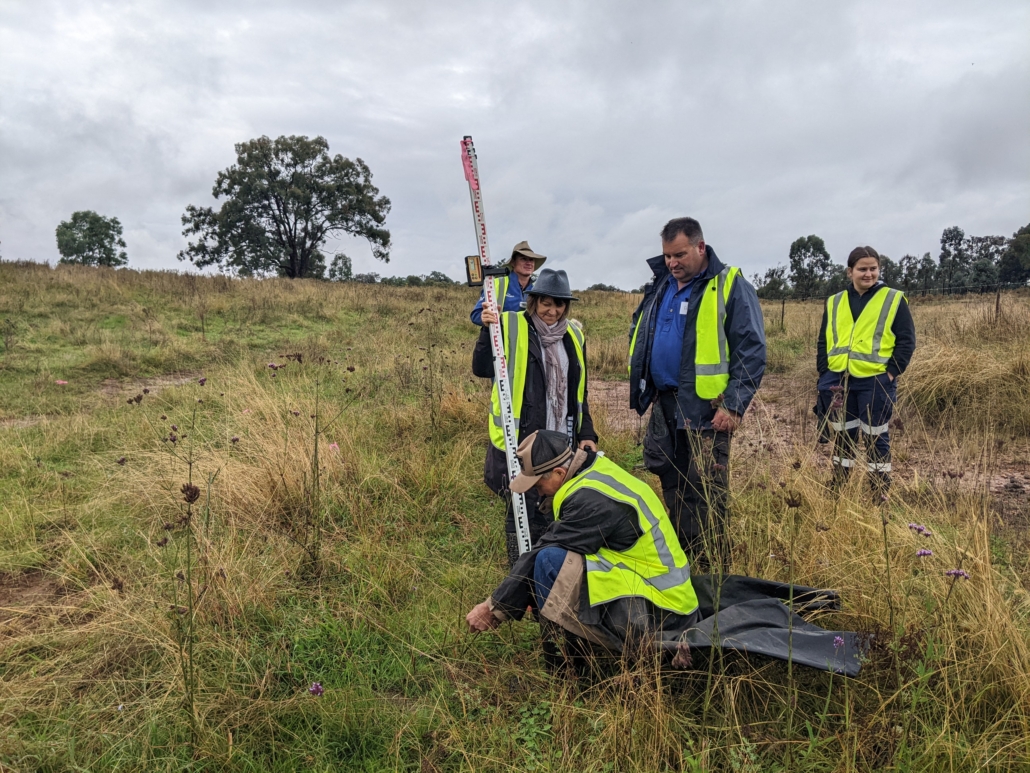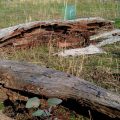Slow the Flow!
Published 29th April 2022. Written by Maddison O’Brien
On Tuesday 26th April 2022, a group of twenty land managers gathered at the old general store at Wollar to begin a Natural Sequence Farming (NSF) course, led by Tarwyn Park Training. The class was diverse, made up of scholarship awardees, Peabody Wilpinjong environmental staff and lessors of Wilpinjong farmland. The group were there to expand their knowledge of landscape function that will inform their decision making within the farming and mining context.
Over the four day course, the five pillars of NSF were explored and demonstrated;
Slow the flow,
Let all plants grow,
Careful where the animals go,
Filtration is a must-know and,
Return to the top to recycle the lot.The course is a curated program modelled on the revelations of Peter Andrews, well-known author of ‘Back from the Brink’. Delivered by a small team led by Peter’s son Stuart Andrews, the lessons are hands-on, taking participants out onto the farmscape to observe the principles of water flow and energy moving through the land. Stuart explains, “Natural Sequence Farming is all about understanding how the Australian landscape functioned prior to any human interference and how we can get that function working again whilst creating productive systems.” Stuart’s aim is to enable land managers to get out into the landscape and make these changes to benefit their own production and the overall health of the greater environment.
The chance to access such important training so close to home is thanks to Peabody Wilpinjong organising the opportunity and awarding scholarships to a handful of land managers in the Watershed Landcare community. The participants are all looking to deepen their understanding of how they can use contouring and vegetation to capture and slow water in the landscape while simultaneously building resilience against drought, fire and flood.

Course participants learn how to mark out points on contour in preparation for a contour channel to be installed to hydrate the landscape and prevent erosion.
Sally-Anne is one of the Mudgee locals in the Watershed Landcare community attending the course through the scholarship. “I’m here because I’d like to better understand the Australian landscape and have a resilience plan for future droughts. My aim is to grow nutrient-dense fodder for my sheep and the best quality lamb for my family’s consumption. By using these methods I am building healthy soil for future generations, which is my kids.”
The course comes at a great time for land managers in a landscape that is no stranger to extreme events. If participants can go back to their land and implement NSF strategies, ecological function can be restored with very little expense, these actions such as slowing water using contours and vegetation are futureproofing in the face of erratic climate and weather.





